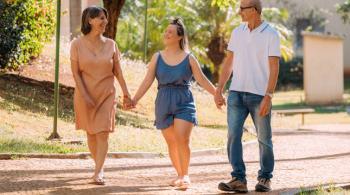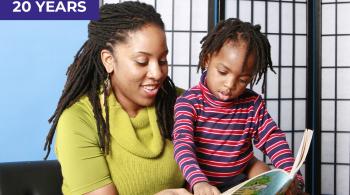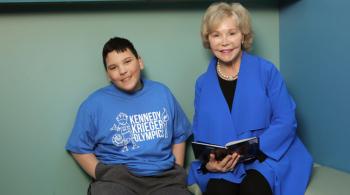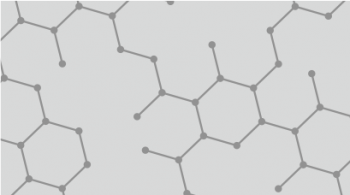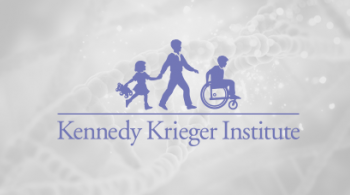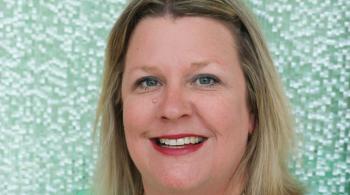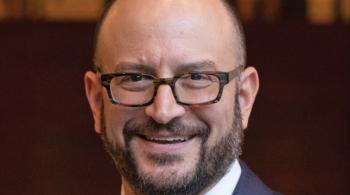By Nia Adams and Abby Budman
The Maryland Center for Developmental Disabilities (MCDD) recognizes the need to increase its trainees’ knowledge of suicide prevention strategies, in addition to other topics critical to the well-being of people with intellectual and/or developmental disabilities (IDD) and their families. As trainees, we are offered opportunities to attend conferences as a part of our internship. We are excited to share the knowledge we gained from attending different state and national conferences, and to share our reflections on these experiences.
On October 6, we attended Maryland’s 33rd Annual Suicide Prevention virtual conference as student participants. This conference exposed us to different topics such as suicide and mental health awareness, racial equity within suicide prevention, and the lived experiences of individuals and families impacted by suicide. One conference speaker discussed their personal experiences with suicide and the critical need for support from faith communities. This was a new perspective for us, and allowed us to tune in to the part of ourselves that is eager to help people with disabilities and others who are struggling with mental health challenges. Another speaker discussed their experience with losing a family member who died by suicide. Hearing their story allowed us to gain a better understanding of the emotional struggles that families go through and the need to support them through the grieving process. Although there were so many inspiring lessons learned from this conference, the main ones included tailoring suicide prevention programs to fit the needs of the community, and increasing mental health awareness and support within all communities. We recognize the importance of sharing what we learned with others, and look forward to applying our new knowledge in our future practice.
On November 1 through 3, we attended a three-day virtual conference, “Maternal Health & Disability: The Accessibility of Motherhood—A virtual conference on Disability and Pregnancy.” This three-day workshop discussed the perspectives of women with disabilities, stakeholders, providers and researchers. One panelist talked about how health information regarding pregnancy was not inclusive to individuals with disabilities, which leaves them with nothing to reference when it comes to giving birth or regarding the postpartum experience. Another panelist stressed that the stigma attached to people with disabilities trying to, and becoming, pregnant were the biggest obstacles they faced in the healthcare setting. Each stakeholder panelist discussed their individual experience with pregnancy and with their healthcare providers. As individuals who want to grow in the healthcare field, we found that the conference helped us understand what we need to do as students and future healthcare leaders to better support women with disabilities and their families.
On November 15 through 17, we attended the three-day Association of University Centers on Disabilities (AUCD) conference. Each day opened with different plenary sessions with great leaders, advocates and activists in the field of IDD. Participants attended training sessions on topics of their choice, many of which were relevant to the projects we are working on as trainees, including mental health literacy, school-based sexual education, and the voice of families caring for persons with IDD. The presenters in one of the sessions discussed how caregivers or “gatekeepers,” people close to a person with IDD, can use their knowledge of mental health to address concerns that may arise. Also discussed was how to better address the lack of mental health services for individuals with IDD. One of the biggest takeaways from this session was learning how to listen and validate a person’s thoughts and concerns without judgment. Another session was on sexual and reproductive health in the IDD community. Sexual and reproductive health are important topics for all individuals, but because of stigmatisms and stereotypes associated with IDD, there is little to no sex education curriculum in the school setting offered to students with IDD.
As future healthcare providers and leaders, we feel it is important that we hear from self-advocates about how their needs can be met, and what barriers inhibit their overall success. On the second day of the conference, we attended a session about the perspectives of children and families with special healthcare needs. We gained knowledge from first-hand stories from parents and families, and we connected our observations to one of our own projects, the Disability Perspective Experience. To provide the best services to children with disabilities and their families, it is critical to understand their point of view. Many parents talked about the importance of support, the positive and negative effects of COVID-19 on their lives, and the importance of equitable services and programs for their children. Overall, the opportunity to attend this conference opened our minds to new perspectives, ideas, the role we play in the healthcare field and the importance of collaboration across all system levels in the community. It was empowering to hear from so many different people, all working toward the same goal of improving opportunities for, and quality of life of, individuals with IDD.


